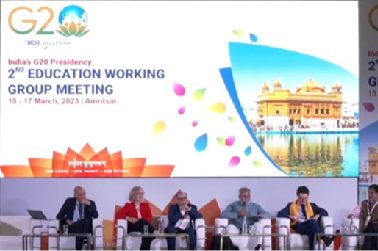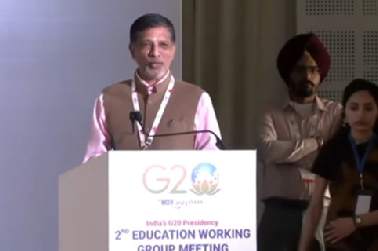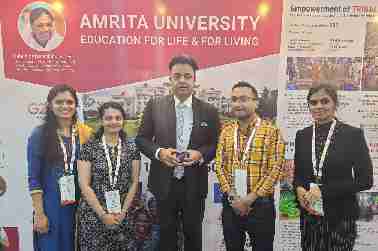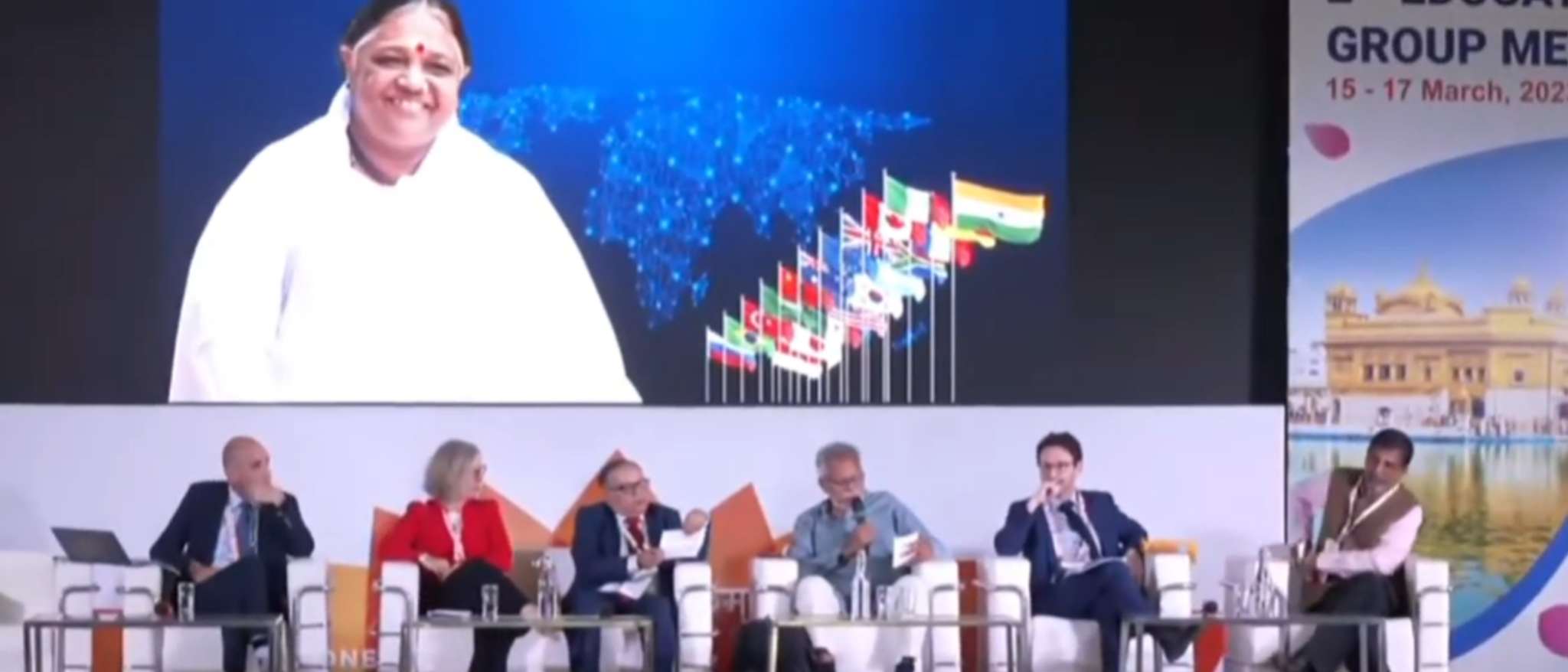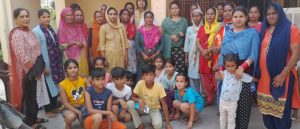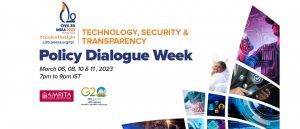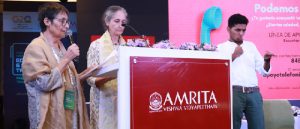Seminar on Strengthening Research and Promoting Innovation through Richer Collaboration
Venue: Khalsa College, Amritsar (Punjab)
Amrita-led Education and Digital Transformation Civil 20 (C20) Work Group participated in the 2nd G20 Education Working Group Meeting on 15 March 2023. A seminar on the topic “Strengthening Research and Promoting Innovation through Richer Collaboration” was organized at Khalsa College, Amritsar, on 15 March 2023. IIT Ropar organized the event with collaborative inputs from IIM Amritsar, IISC Bengaluru, and TISS Mumbai.
The keynote address was delivered by Prof. Budaraju Srinivasa Murty, Director, IIT Hyderabad. The panel discussion on “Research in Emerging and Disruptive Technologies, Industry – 4.0” was chaired by Prof. Rajeev Ahuja, Director, Indian Institute of Technology Ropar, Punjab. The moderator was Prof. Anil K Gupta, IIM – Ahmedabad. The four invited panelists representing G20/invited countries were Prof. Raghu Raman, India; Alison Dell, Australia; Piers Purdy, UK; and Nicolas Gherardi, France.
Representing the Civil 20, C20 engagement group, at the seminar, Prof. Raghu Raman, Dean, Amrita School of Business, Amrita Vishwa Vidyapeetham, said, “I am an academician, but I am representing C20, and for those of you who are wondering what C20, the Civil 20, the NGOs or the Non-profit making entities. I think their contribution is also very important. Our honorable Prime Minister has nominated the Chancellor of the University AMMA to be the Chair of the C20.”
Professor Raman shared his thoughts on industry 4.0: “I think a slightly different perspective and probably an urgent one is how do we look at industry 4.0 in the context of social and environmental aspects” envisioned as industry 5.0. He adds, “I think along with foundational skills, critical thinking, problem-solving, collaboration, we need to develop skills like empathy, compassion, and emotional intelligence to work collaboratively with both machines and people.”
To achieve this goal, he added, “I want to share a small best practice at Amrita Vishwa Vidyapeetham, where Amma is also the Chancellor. We call it ‘Education for a Living, Education for Life.’ For us, ‘Education for Life’ means developing students’ qualities so that they go beyond understanding the language of machines. How do you develop a culture of the heart, a culture of giving, a spirit of sharing?”
Speaking of the University’s flagship program, Live-in-Labs exemplifies this objective. The institution has adopted 148 communities in almost every state of the country, and students live there for a minimum of four weeks, which goes up to a few months. Professor Raman said that students “work with the local community to co-design solutions that are sustainable. And what we have found is not so much that the students and teachers have helped the community that they were living in. It is more the students who gained.”
Through the experiential learning process offered through Live-in-Labs, students become more compassionate citizens while addressing real-world challenges. Professor Raman highlights the direct alignment of the program with multiple SDGs. He adds that, in the Global South, India is a major contributor to SDG research, adding, “It is absolutely an area that India can provide leadership when we talk about industry 4.0 and social and ethical considerations.”
Highlighting the fact that values based on compassion and sustainability are deeply ingrained in Indian culture, he adds, “India can offer a very unique example of compassion-driven research and approach to the rest of the world and can be a huge advantage in the development of new and disruptive technologies that prioritize human beings, human wellbeing, as well as sustainability.”
A multimedia exhibition was organized as part of the event. Amrita-led Civil 20 showcased best practices and initiatives.
